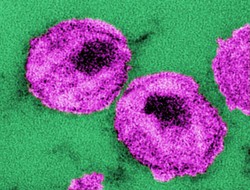The use of combination antiretroviral therapy since 1996 has made HIV a manageable chronic disease. Though there is still no cure or satisfactory vaccine, studies suggest that it is possible to prevent spread of the infection with those drugs. In other words, agents which control the intensity of HIV in a person with the disease may protect the HIV-negative sexual partner from acquisition of the virus [1].

HIV Prevention
Medication to treat human immunodeficiency virus (HIV) infection is also useful to prevent transmission of the disease.
Some Uses of Antiretrovirals to Prevent Disease
It is well-known that administration of antiretroviral therapy to pregnant women who have HIV significantly prevents transmission to the baby. In health care settings where an employee may suffer a needlestick or other sharp instrument injury, immediate post-exposure administration of antiretroviral agents to the health care worker may prevent the acquisition of this medical condition. This naturally applies to cases in which the sharp instrument contains blood from a patient who is HIV-positive [1].
Contagiousness Varies with Stage of Disease
The contagiousness of an individual with HIV infection will vary with the stage of the illness. For example, the first phase lasts for several weeks after acquisition of the virus, and levels of the microbe are extraordinarily high. This is when the virus infects billions of human cells within three weeks. If the patient has unprotected sex during this period with someone who does not have the disease, the risk of transmission is very high [1].
The third and final stage of the disease is where the patient develops acquired immunodeficiency syndrome (AIDS). He or she will be quite infectious during these final few years of life unless antiretroviral medication improves the medical condition.
The longest stage is the chronic or latent phase, and the degree of contagiousness is lower than the first or third stages of HIV infection. Nevertheless, transmission can still occur during the 8 years or more that may comprise the chronic stage. Moreover, since this latent phase continues for so many years, it is conceivable that many transmissions take place during that time.
In other words, the HIV-positive patient may have more sexual encounters during the phase which lasts the most years than the other two stages [1].
Treatment as Prevention
A study in Africa demonstrated that seropositive sexual partners who took antiretroviral medication were 92 percent less likely to transmit the disease to seronegative persons than when the seropositive individual did not receive those therapeutic agents [1]. The medication maintains the HIV RNA plasma levels to an acceptable range so the seronegative partner does not acquire the infection despite exposure to the virus.
Conclusion
There has been much progress in the use of medication to control the HIV pandemic. Education of sexually active individuals and further research are necessary.
References
- Mayer, K. and Venkatesh, K. (2010). Antiretroviral therapy as HIV prevention: Status and prospects. American Journal of Public Health, 100, 1867-1876.
- The photograph is a thin-section transmission electron micrograph of several human immunodeficiency virus particles. Reprinted with permission from Centers for Disease Control/Dr. A. Harrison/Dr. P. Feorino.
Disclaimer
The information contained in this article is for educational purposes only and should not be used for diagnosis or to guide treatment without the opinion of a health professional. Any reader who is concerned about his or her health should contact their physician for advice.
You might also like
How to React to and Help a Loved One with CancerDealing with cancer? Learn how to react, treat and care for a loved one when ...
Do You Have Your Own Cure For Cancer?Is it possible you might be completely unaware of the cancer cure, a natural ...



 The Reality of Aspirinon 05/24/2021
The Reality of Aspirinon 05/24/2021
 An Old Microbeon 03/31/2021
An Old Microbeon 03/31/2021
 Coronavirus and Mental Illnesson 02/14/2021
Coronavirus and Mental Illnesson 02/14/2021
 Acute Ischemic Strokeon 12/25/2020
Acute Ischemic Strokeon 12/25/2020


Comments